Product customization in ecommerce emerged when shoppers began expecting more than just generic product offerings online. They want items tailored to their specific needs and preferences similar to what is possible at a brick-and-mortar store. The shift toward personalization is how successful Shopify merchants approach their strategy and catalog offer to win more sales from their customers globally.
The numbers from McKinsey tell a compelling story. Fast-growing companies generate 40% more revenue from personalization than slower-growing competitors. With 71% of consumers now expecting personalized experiences, customization isn’t just a nice-to-have feature.
The following benefits explain exactly how product customization can transform your Shopify store’s performance from basic to exceptional.
What is product customization?
Product customization lets customers modify products to meet their specific needs before making the purchase. Instead of choosing from pre-made options, shoppers can adjust dimensions, colors, materials, or features to create something uniquely theirs.
This approach works especially well for Shopify stores selling items like custom furniture, personalized apparel, or made-to-measure products.
Consumers expect unique products that reflect their individual style and needs. Give your customers the flexibility they desire when making offline purchases with the convenience of buying online.
Younger demographics, particularly Millennials, prioritize distinctive experiences over generic offerings. This demand for uniqueness drives customers to seek out brands that offer customization options, making it a powerful tool for attracting and retaining shoppers.
Benefits of product customization
Increased customer engagement and satisfaction
When shoppers can pick colors, fabrics, sizes, add special elements, when they can watch their dream product come to life on screen, shopping becomes an experience rather than a chore. The convenience of making these purchase decisions on their own terms, when the time is the most convenient to them, is the difference between your store and another that offers these product options.
This hands-on approach keeps visitors engaged longer and creates an emotional investment in the final product. The result? Customers who feel genuinely excited about what they’re buying instead of settling for “good enough” or going elsewhere.
Higher conversion rates and average order values
Custom products naturally command higher prices because they solve specific problems perfectly. A fabric calculator that instantly shows the exact cost for 847 square inches of premium material eliminates guesswork and sticker shock.
Customers see fair, transparent pricing based on their exact needs, making them more confident about clicking the “Buy Now” button.
Higher brand loyalty and differentiation
While your competitors sell the same mass-produced items, you’re offering something nobody else can replicate. Customers who spend time crafting their perfect product become emotionally attached to both the item and your brand.
They’ll return for future purchases and enthusiastically recommend you to friends who appreciate quality and personalization.
7 Use cases for product customization
Personalized apparel and accessories
Custom clothing has exploded beyond basic screen printing. Shoppers now design complete sports jerseys with their favorite numbers, team colors, and personal touches. Monogrammed bags let customers add initials in their preferred font and thread color. These products work because they transform everyday items into personal statements that customers genuinely love wearing. They also make incredible personalized gifts.
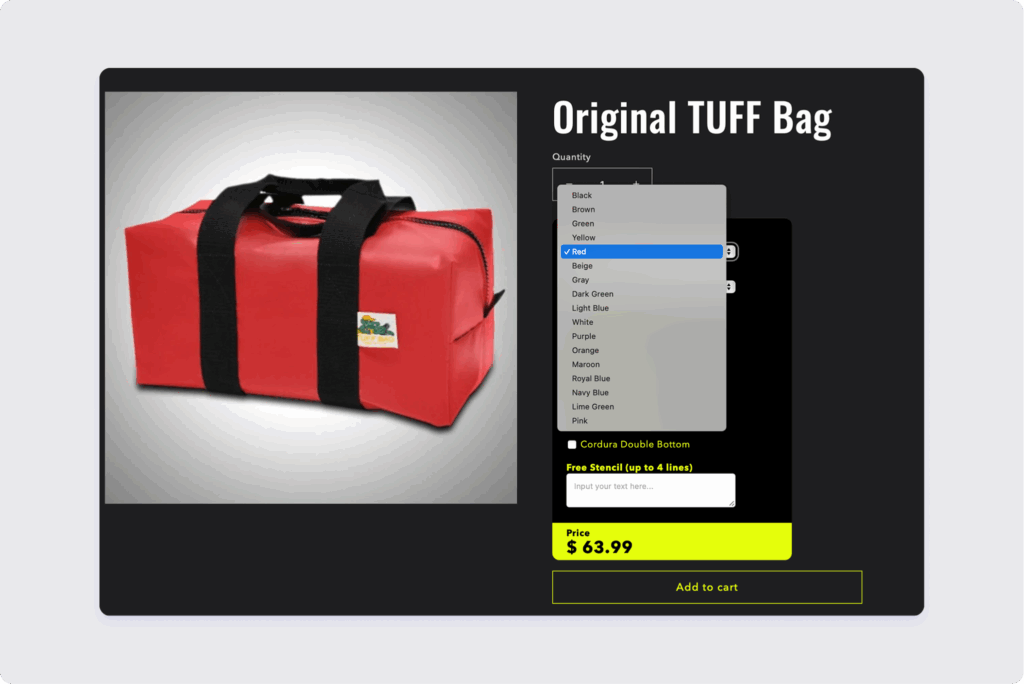
Engraved gifts and jewelry
Nothing beats the emotional impact of personalized jewelry. Couples engrave wedding rings with GPS coordinates of where they first met. Parents add children’s birth dates to pendants. Watch engravings commemorate graduations or anniversaries. These customizations turn standard products into treasured keepsakes that customers will never want to replace.
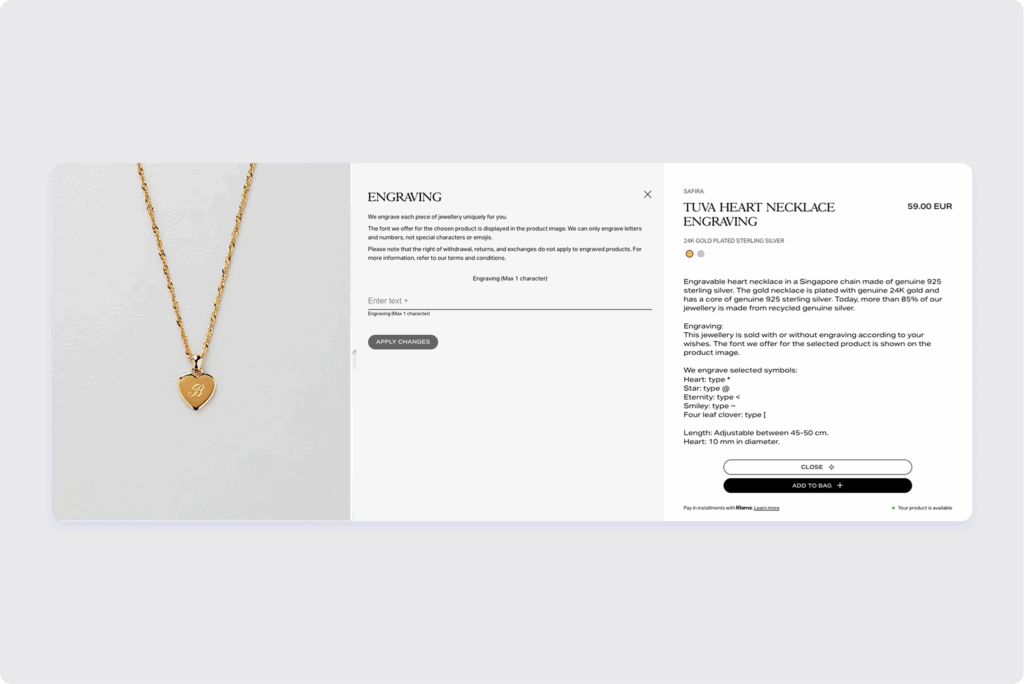
Custom home decor
Photo blankets have become family favorites for good reason. Customers upload dozens of memories to create cozy conversation pieces. Personalized doormats welcome guests with family names or funny phrases. Custom wall art displays favorite quotes in colors that match existing decor. These products succeed because they make houses feel like homes.
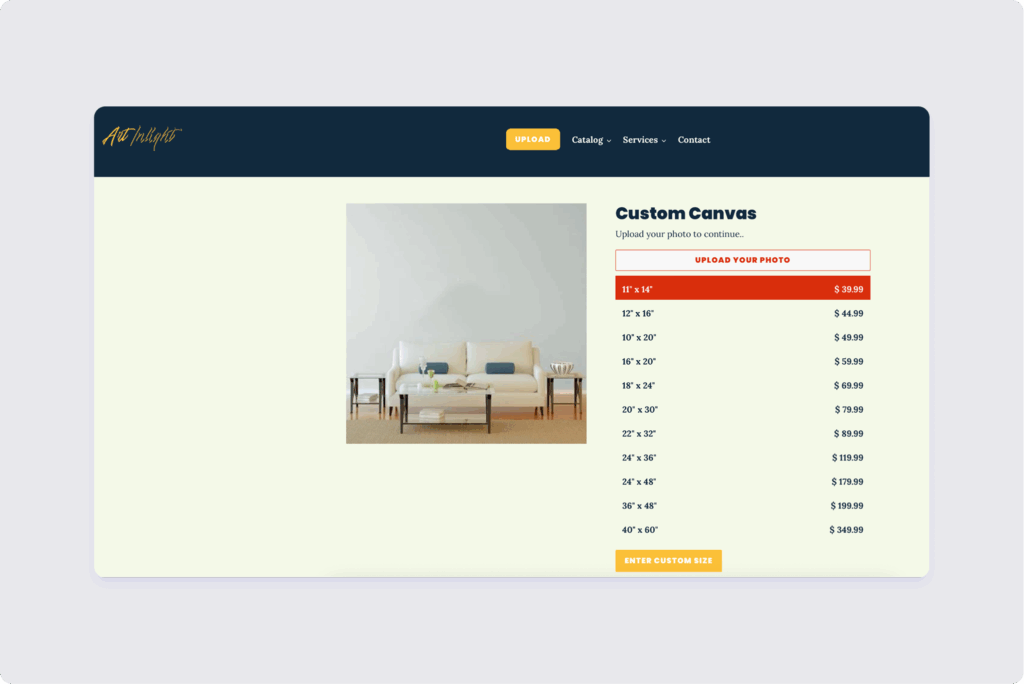
Tailored beauty and skincare products
Beauty customization goes beyond choosing a shade. Customers complete detailed skin assessments to receive custom-formulated moisturizers targeting their specific concerns. Fragrance companies let shoppers blend signature scents from preferred base notes. This approach works because everyone’s skin and preferences are genuinely different.
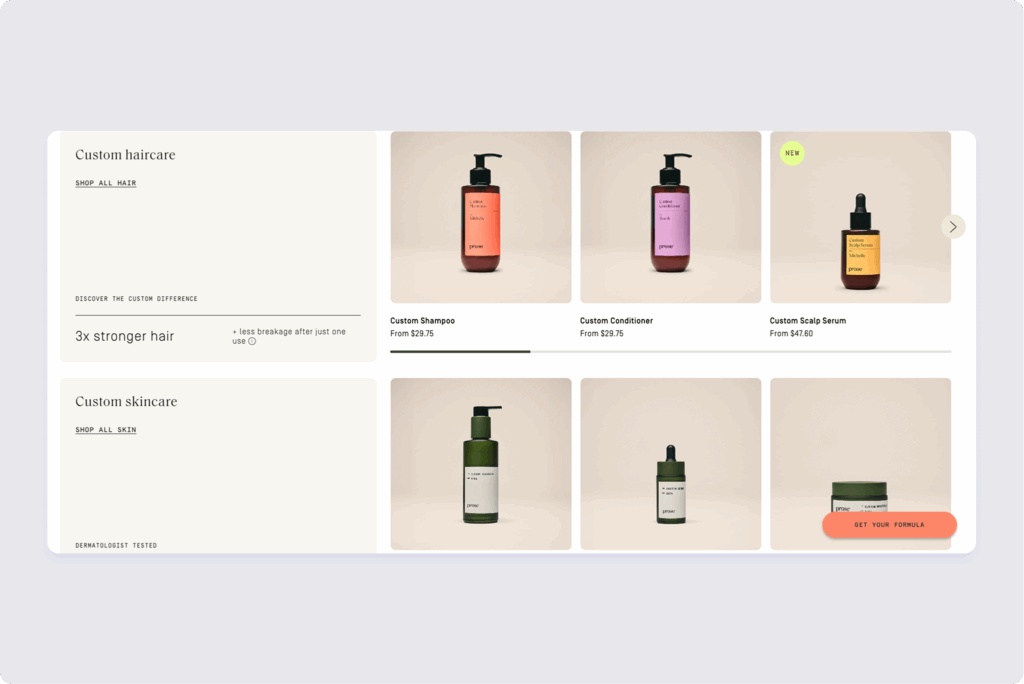
Bespoke footwear and accessories
Sneaker customization has reached new heights with customers designing every detail from scratch. They choose leather types, lace colors, sole patterns, and even add personal logos. Custom handbags let shoppers select hardware finishes and interior layouts. These products command premium prices because customers create something completely unique.
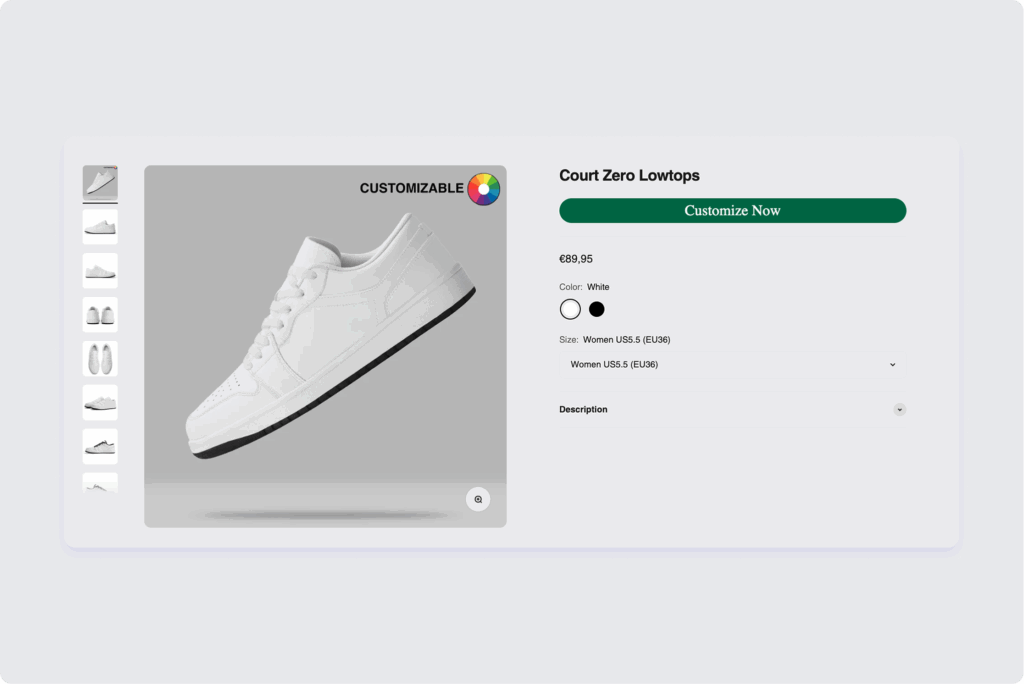
Personalized tech gadgets
Gaming enthusiasts design custom controller skins featuring favorite characters or personal artwork. Phone cases showcase family photos or inspirational quotes. Laptop sleeves display custom graphics that reflect professional or personal interests. Tech customization works because these daily-use items become extensions of personality.
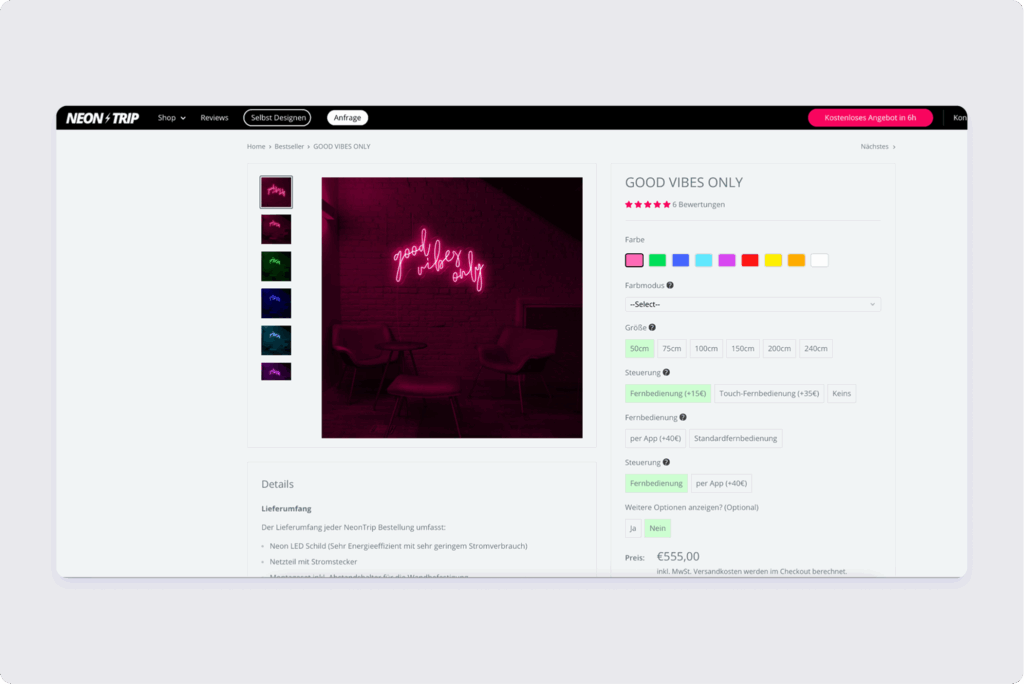
Custom food and beverage products
Subscription snack boxes let customers curate monthly deliveries based on dietary restrictions and taste preferences. Wine companies offer custom blends with personalized labels for special occasions. Chocolate makers create gift boxes with hand-picked flavors and custom packaging. Food customization succeeds because taste is deeply personal and memorable.
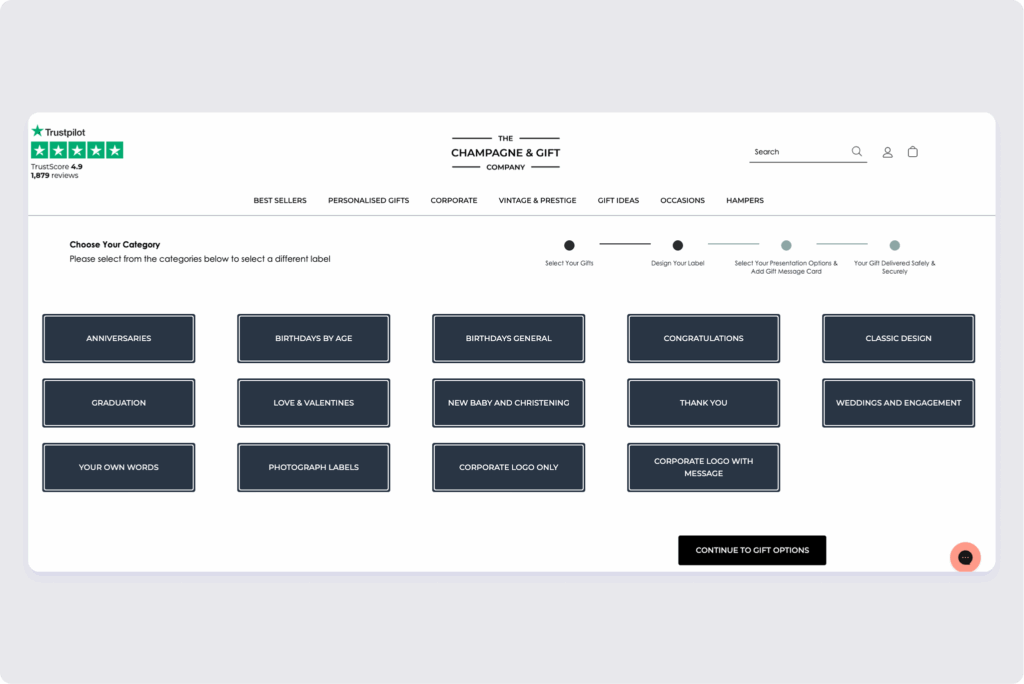
How customization drives business success
When someone designs their perfect sneakers or creates a personalized photo blanket, they naturally want to share their creation on social media. This organic promotion drives word-of-mouth marketing that money can’t buy. Friends see these unique items and immediately want to know where they came from.
The emotional investment customers make during customization translates directly into loyalty. Someone who spent 20 minutes perfecting their custom phone case design won’t easily switch to a competitor offering generic options.
Customization also provides valuable competitive differentiation in saturated markets. While competitors race to the bottom on price for identical products, customization Shopify stores can maintain healthy profit margins.
Tips for succeeding with product customization
Start simple and scale smart
Begin with basic customization options like color choices or text engraving before expanding to complex configurations. Test customer response to simple features first, then gradually add more sophisticated options based on demand. This approach prevents overwhelming customers while keeping development costs manageable.
Invest in User-Friendly Tools
Drag-and-drop builders, real-time previews, and instant price updates keep customers engaged throughout the design process. Clunky tools that require technical knowledge will drive potential buyers away before they complete their purchase
Implement dynamic pricing solutions
Custom products require dynamic pricing that updates automatically based on customer selections.
Shopify apps like Apippa Custom Price Calculator eliminate the guesswork by showing transparent costs in real-time. This approach builds customer confidence while streamlining your pricing management across unlimited product variations.
Focus on mobile experience
Many customers will design custom products on their phones, so ensure your customization tools work flawlessly on mobile devices.
Touch-friendly interfaces, optimized loading speeds, and simplified navigation are essential for mobile customization success.
Provide clear production timelines
Custom products take longer to produce than standard inventory items. Set realistic expectations upfront about production and shipping times.
Clear communication prevents disappointed customers and reduces support inquiries about order status.
Final word
Product customization represents more than just a trend—it’s become essential for Shopify merchants who want to thrive in competitive markets.
The evidence is clear: customers will pay premium prices for products tailored to their specific needs and preferences.
